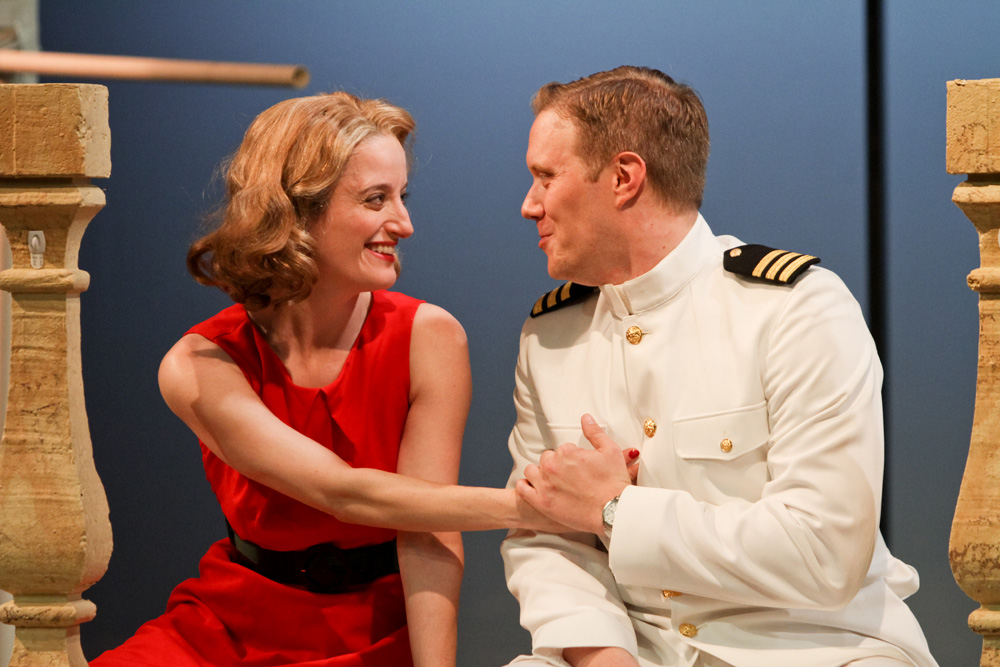Much Ado About Nothing
Center House Theatre (Seattle Center), 733-8222, seattleshakespeare.org. $25–$48. 7:30 p.m. Wed.–Sat., plus matinees. Ends Nov. 17.
All the screwball elements are in place: a cigarettes-and-whiskey-voiced blonde, a strapping playboy who’d sooner be dead than wed, and their coteries, plus a honey-throated crooner, horn-rims, beach balls, parasol drinks, espadrilles, masts to climb, and a boat to hide in. It’s 1953, and Messina, as conceived by Craig Wollam, is a waterside pleasure dome, replete with canal, pool, harbor, rampart, and tawny stone esplanade. When bonny Don Pedro (Jim Gall) announces “I know we shall have reveling tonight,” his hips wriggle a cha-cha. A nearly vocational commitment to leisure and fun replaces the careworn war years in George Mount’s sprawling postcard of connivance and flirtation. As the setting for Shakespeare’s most endearing comedy, Messina is a place you’ll want to bide awhile.
Naturally Jennifer Lee Taylor and Matt Shimkus get the plummest bits as the fiercely unhitched sparrers Beatrice and Benedick. Her Bette Davis eyes belie a knack for clowning, and his seemingly impassive, Kennedy-jawed face becomes irresistible when stricken by her words. The careenings of this love-wreck, and that of Beatrice’s virtuous cousin Hero (Brenda Joyner) and her gullible admirer Claudio (Jay Myers), propel us from sartorially sophisticated swizzle parties to casual picnics, outfitted (emphasis on “fitted”) by Doris Black. As if the rich visuals, enhanced by Roberta Russell’s ethereal lighting, were not world enough, Rob Witmer’s soundscape offers yet more gratifications, including crickets, waves, and payoffs for some funny slapstick setups. These include Benedick’s eavesdropping scene and Dogberry’s (David Quicksall) investigating his assistant Verges’ derriere with a Geiger counter.
The postwar period setting offers Don Pedro’s malevolent brother Don John (Nick Rempel) a handy excuse for his bitterness: In white military uniform, his reticence looks like haunted PTSD from World War II or Korea. But despite the trappings of the superficially chipper, tragedy-erasing early ’50s, Mount doesn’t force historicity, opting rather to let the themes sing as they will to whom they will. And speaking of singing, Justin Huertas (as a Bobby Darin–like Balthasar) has an uber-smooth voice that ups the cool of every Michael Brockman composition he performs, including the beautiful pep song for the ladies, “Sigh No More.” In this Eisenhower-era, A-bomb setting for the Bard, where even the Kinsey Report makes an appearance, nothing’s more explosive than passion and a lit fuse.
stage@seattleweekly.com








